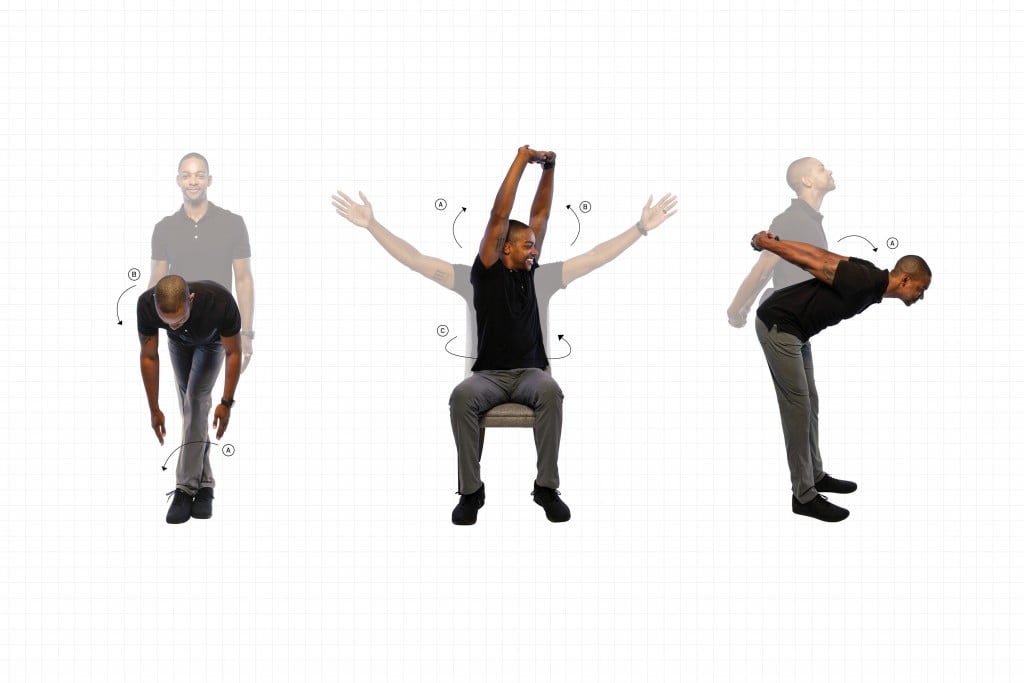How to Improve Your Attention Span

5 steps to improving your attention span in a world that demands focus but seems intent on destroying it
The human brain is a complex computer that helps us interact with our complicated world. Other computers, however, are among the many things that distract our brains from focusing on that world.
“There’s all sorts of information in the environment – there’s light, there’s sound, and all of these things are reaching your different senses constantly,” explains Scott Sinnett, associate professor and undergraduate chair of psychology at UH Manoa.
Those sensory signals are converted and interpreted by the brain to form a mental representation, called perception. “What makes it difficult is that there’s so much going on at any given moment that, if you were to actually perceive everything that’s happening at once, you would kind of be paralyzed – you wouldn’t be able to move forward because there’s too much information,” Sinnett says.
“Attention is a mechanism that our brain has to help us sort through all of that information and determine what’s most important at any given moment, what’s most important for any goals that we might have.”
Cal Newport, a computer science professor at Georgetown University and author of the bestselling book “Deep Work,” argues that attention has become increasingly fragmented in the age of digital technologies and social media. In his TEDxTysons talk, Newport advocates quitting social media because of its addictive nature and the constant compulsion to check statuses and updates. “The actual designed, desired use of these tools is that you fragment your attention as much as possible throughout your waking hours,” he says.
Fragmented attention has far-reaching implications in the workplace and business sphere, where the market values products that are rare and valuable. These products require “deep work,” and he cites a growing amount of research that suggests “if you spend large portions of your day in a state of fragmented attention … this can permanently reduce your capacity for concentration.”
“In other words, you could permanently reduce your capacity to do exactly the type of deep effort that we’re finding to be more and more necessary in an increasingly competitive economy,” Newport says.
Author and consultant Simon Sinek raises similar concerns in his widely circulated Inside Quest interview. While the interview primarily focuses on Millennials, his insights into digital technologies apply to all generations. Like Newport, Sinek classifies the overdependence on digital and social media as an “addiction,” and “Like all addictions, in time it will destroy relationships, it will cost time, it will cost money and it will make your life worse,” he says.
When we remain constantly “plugged in” and our attention is occupied by digital conversation and entertainment, we sacrifice the small experiences that inspire creativity. “If you don’t have the phone, you just kind of enjoy the world,” Sinek says. “And that’s where ideas happen. The constant, constant engagement is not where you have innovation and ideas. Ideas happen when our minds wonder, you see something and you go, ‘I bet they could do that.’ That’s called innovation, but we’re taking away all of those little moments.”
The following five strategies, compiled from these three experts, emphasize building attention in small moments as well as the “deep work”that can lead to increased fulfillment and productivity at work.
1. NO CELL PHONES IN CONFERENCE ROOMS, SAYS SINEK. “NONE. ZERO.”
Everyone knows the feeling of walking into a room before a meeting and seeing a circle of heads bowed in concentration, furiously texting away in the fleeting moments before the agenda begins.
“That’s not how relationships are formed,” Sinek says. “Trust doesn’t form in an event, in a day. Even bad times don’t form trust immediately – it’s the slow, steady consistency, and we have to create mechanisms where we allow for those little innocuous interactions to happen.”
Eliminating cell phones from the conference room will encourage genuine conversation and attention surrounding meeting times, building stronger professional relationships and personal friendships.
2. SET GOALS BEFORE BREAKS, THEN STICK TO THEM.
Taking breaks should not be seen as unproductive. “It’s good to take breaks, not to try to do it all in one sitting – get up and take a break for 60 seconds every 15, 20 or 30 minutes,” Sinnett says. Setting goals before each break can help you pay attention to the task at hand and ensure that you plan your work rather than just react. “But make sure that you don’t break your goals,” he emphasizes.
3. REMOVE THE TEMPTATIONS AROUND YOU.
“We cannot trust our willpower,” Sinek says. “We’re just not strong enough, but when you remove the temptation, it actually makes it a lot easier.”
It may be as simple as leaving your phone in your bag and just out of reach. “I have colleagues who will turn off their email, turn off the search engine in the background or log out of Facebook,” Sinnett says, “whatever it might be, so that they can actually focus on what they need to get done rather than switching back to the arguably more fun things like checking our social media.”
Sites like StayFocused and SelfControl even allow you to either block certain websites for specific periods of time or restrict the minutes you can spend on a site within a day.
4. MAKE WISE MUSIC CHOICES.
Music can help in a noisy work environment, but sometimes it can be more distracting than helpful, Sinnett says. Music without lyrics can be a good choice, or select familiar music that doesn’t demand your attention to catch new lyrics. There is a difference between actively listening to music and merely hearing it as background noise. If you find your self “listening” to the music and paying more attention to the guitar solo than your work, change the Spotify station or turn it off.
5. SEPARATE WORK AND PERSONAL TIME.
Set a boundary between your work time and personal time. Turn off your email in your downtime – give it your full attention at work rather than part of your attention during both your work and leisure time. “I rarely work past 5 p.m. on the weekdays,” Newport says.
“If you treat your attention with respect, you don’t fragment it and you allow it to stay whole, you preserve your ability to concentrate, so when it comes time to work you can actually do one thing after another and do it with intensity. And intensity can be traded for time.”
Your mind needs a break, and gaining some distance from digital media can help you refocus. “It’s actually a restorative, very peaceful way to spend your time out of work,” Newport says. “You don’t have the constant hum of stimuli and the background hum of anxiety that comes along with that.”
Improve Attention by Playing Video Games?
“We did see slight improvement in the group that played the action video game as opposed to the group that played the non-action video game, which in our case was Tetris,” Sinnett says. Although the results are in line with other recent studies, he does not advocate becoming a video game junkie to improve attention.
One caveat to the study: To make the groups as similar as possible for comparison, there was no group entirely without video games.






